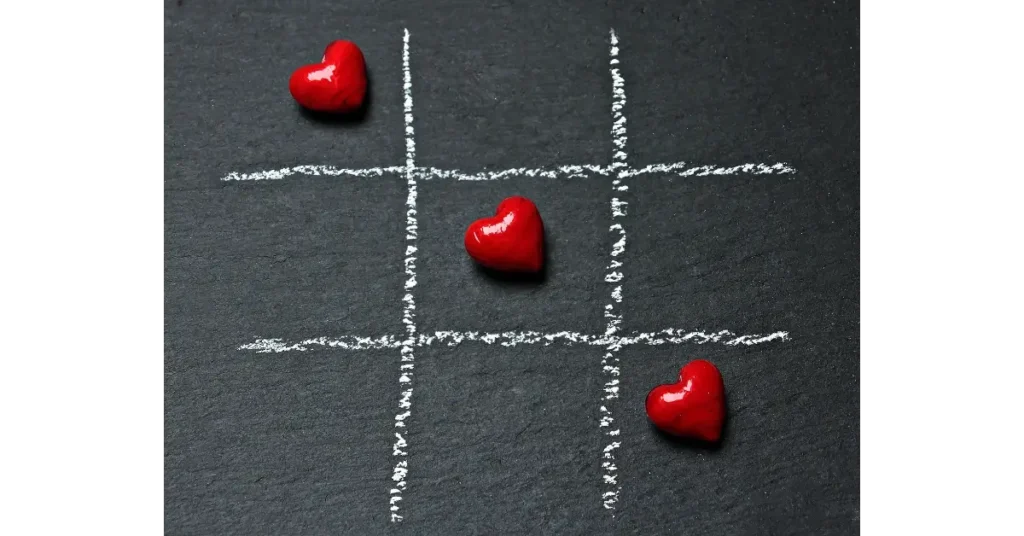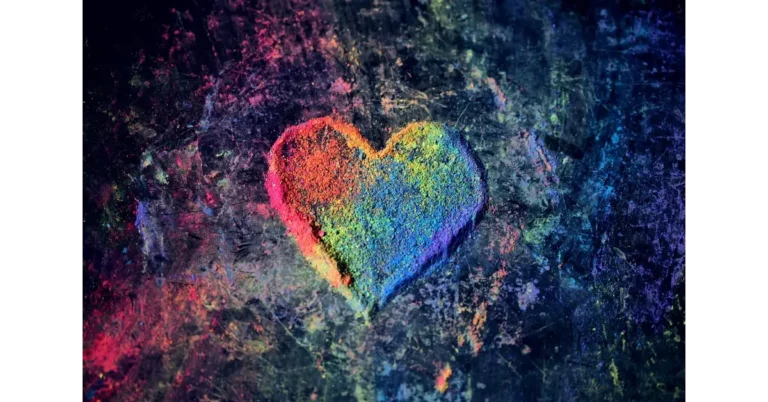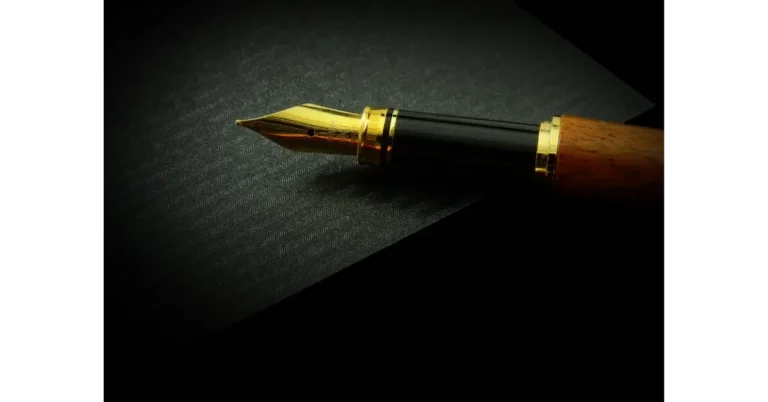Understanding Self Love
Exploring the notion of self love symbolism uncovers an immensely rich and historically meaningful landscape that invigorates the intellect.
History of Self Love Symbolism
Historically, various cultures have embraced symbols to represent self love and the journey towards it. In Greek mythology, Narcissus fell in love with his own reflection, a tale cautioning against vanity but also highlighting the human ability to appreciate one’s own beauty. Ancient Egyptian hieroglyphics depicted the Ankh as a key of life, symbolizing life through self-care and love.
Psychological Foundations
From a psychological standpoint, self love forms the bedrock of our mental and emotional wellbeing. Dr. Kristin Neff, a pioneer in this field, identifies self love as a combination of self-kindness, recognition of our shared humanity, and mindfulness. It is supported by the understanding that personal acceptance is necessary for stable mental health, a concept also aligned with the teachings of Carl Rogers and his beliefs in unconditional positive regard.
Symbols of Self Love
In our exploration of self love symbolism, we’ll uncover the depth and meaning behind some universally recognized icons. These symbols act as reminders of the importance of cherishing and valuing ourselves.
The Heart Symbol
The heart is perhaps the most widely known representation of love, including the love that we hold for ourselves. It’s a visual affirmation that encourages us to maintain a compassionate and nurturing attitude towards our own being.

The Rose
Roses, particularly in their vibrant shades, symbolize the beauty and grace of accepting oneself. Each petal can represent an aspect of our personality that we acknowledge and honor, promoting a balanced sense of self-appreciation.
The Mirror
A mirror symbolizes self-reflection and the honest acknowledgment of our true self. It encourages us to look beyond the surface and accept our full image with kindness and understanding.
The Circle
The circle, an endless loop, signifies the continuity of self love. It reminds us that our journey of self-compassion is an ongoing, ever-evolving process that encompasses our entire being, connecting every aspect of ourselves in unity.
Cultural Perspectives on Self Love Symbolism
When we explore self love symbolism, it’s fascinating to see how different cultures interpret the concept through their unique symbols and narratives. Let’s take a closer look at the different interpretations from Eastern and Western perspectives.

Eastern Interpretations
In Eastern cultures, symbols of self-love often draw from spiritual and natural elements. For instance, the lotus flower is a significant emblem in Hinduism and Buddhism, representing purity, enlightenment, and self-regeneration. Its ability to bloom in muddy waters is seen as a metaphor for rising above challenges and a journey towards self-realization.
In Confucianism and Taoism, self-love is about harmony with oneself and the universe. The yin-yang symbolizes balance and suggests that we accept the duality within us—embracing both our strengths and weaknesses with compassion.
Western Interpretations
Moving to the West, Christian tradition reflects self-love through the lens of agape, a form of love that is charitable and selfless. This notion of love encourages individuals to value themselves as creations of God, which in turn allows them to love others fully and without reservation.
Meanwhile, in contemporary Western culture, psychological concepts interweave with self-love symbolism. Objects like the mirror often symbolize self-reflection and personal acceptance. These symbols encourage us to acknowledge our true selves, inclusive of all our facets, fostering a sense of self-worth and confidence.
Self Love in Literature and Art
As we explore self love symbolism, we dive into how it is woven intricately into literature and art, reflecting the journey of personal acceptance and esteem.
Mythological References
- Narcissus: The Greek myth of Narcissus is a poignant example of self love. He falls in love with his own reflection, leading to his eventual demise. This story is often interpreted as a cautionary tale about the dangers of self-obsession.
- Aphrodite: Conversely, Aphrodite, the goddess of love and beauty, represents positive aspects of self-love and appreciation for one’s own beauty and worth.
Contemporary Art
- Exploring Self Love Art: Many modern artists use their mediums to champion the importance of self-care and acceptance. Their work serves as a reminder to love and accept ourselves.
- Symbols in Art: Artists today commonly incorporate symbols such as mirrors and portraiture to represent and encourage self-reflection and love.
Each mythological story or artistic piece rich in self love symbolism invites us to consider our own relationship with self-love.
Self Love Symbolism in Modern Media
In today’s digital age, we often encounter self love symbolism through various platforms and figures who champion the importance of self-appreciation and care.
Social Media Trends
On platforms like Instagram, Twitter, and TikTok, trends come and go, but the symbols of self love remain constant. Hashtags such as #SelfLove and #LoveYourself are brimming with images of mirrors and affirmation quotes, reflective of the journey towards self-acceptance. These symbols act as visual reminders for users to embrace their own worth, and the interactivity of social media allows these messages to spread rapidly, reinforcing the value of self-love within our online communities.

- Popular Symbols:
- Mirror selfies with captions about self-reflection
- The ubiquitous heart emoji, often used to show self-affection
- Images of rose quartz, a stone associated with self love
Influencers and Self Love
Influencers play a significant role in popularizing self love symbolism. They share personal stories, and self-care routines, and openly display self-love affirmations, reaching millions of followers. For example, when a celebrity flaunts a tattoo of a lotus flower, it’s not just a style statement but also a nod to personal growth and enlightenment. Their influence cannot be underestimated, as they have the power to turn personal symbols into widespread insignias of self love.
- Influential Acts:
- Posting workout routines as a form of self-respect
- Sharing the use of rose quartz in daily life
- Advocating for mental health days and personal time off work
The Role of Color in Self Love Symbolism
When we explore self love symbolism, color plays a pivotal role, influencing emotions and reflecting personal identity.
Color Psychology
In the realm of color psychology, hues act as a non-verbal communicator, often carrying deep symbolic meaning. They possess the power to affect our mood, signal action, and even influence physiological reactions. Colors can evoke feelings that help us align with self-love and personal growth.
Specific Colors and Meanings
- Red: A color that embodies passion, strength, and confidence. Embracing red can boost our self-esteem and assertiveness, which are key aspects of self love.
- Green: Often linked to growth and balance, green signifies a harmonious state of self-acceptance and well-being.
- Blue: Blue hues suggest tranquility and can have a calming effect on the mind, promoting inner peace, an important facet of self love.
- Yellow: This bright color is associated with joy, optimism, and the energy to pursue self-improvement.
- Pink: A color tied to caring, compassion, and love, pink can reflect a nurturing attitude towards oneself.

Self Love Practices and Rituals
Incorporating self love symbolism into our daily routines can empower and affirm our commitment to personal well-being. Here are some specific, impactful practices and rituals to enrich this journey.
Affirmations and Mantras
Affirmations are positive, personal, present-tense statements that we repeat to ourselves to cultivate an environment of self-compassion. For instance, saying “We are worthy of respect and love” in front of a mirror can reinforce self-esteem. Mantras dive deeper, often being phrases of significant meaning which we repeat during meditation to help focus our thoughts and intentions on loving ourselves.
- Sample Affirmations:
- I am enough.
- We deserve happiness and fulfillment.
- Sample Mantras:
- Peace is within us.
- Love flows through us and from us.
Meditation and Mindfulness
Meditation guides us to a clearer mental space, where we can appreciate our intrinsic value without judgment. It offers a pause in our busy lives to reflect and rebalance. Meanwhile, mindfulness allows us to live in the moment and more fully experience self love through daily activities. By focusing on our sensory experiences and accepting our thoughts and feelings, we foster a nurturing relationship with ourselves.
- Meditation Tips:
- Set aside a regular time each day.
- Find a quiet, comfortable space.
- Mindfulness Habits:
- Attend to one task at a time.
- Engage with our surroundings using all five senses.
Our Opinion on Self Love Symbolism
When we explore the concept of self love symbolism, it’s apparent that these symbols serve as gentle reminders of our inherent worth and the importance of nurturing our own well-being. For us, the truest symbols of self-love are those that resonate personally and encourage a positive self-dialogue.
Here’s how we interpret a few common symbols:
- Mirrors: Reflecting our authentic selves, they prompt us to accept our image with kindness.
- Rose Quartz: Known as a crystal of love, it’s believed to foster an aura of self-compassion.
- Butterflies: They symbolize transformation, celebrating growth and self-appreciation.
| Symbol | Represents | Why It Resonates |
|---|---|---|
| Mirror | Authentic self-reflection | Encourages acceptance |
| Rose Quartz | Unconditional self-love and compassion | Promotes healing and warmth |
| Butterfly | Personal growth and transformation | Symbolizes our evolving self-love |
We believe that embracing symbols of self-love matters, because they offer a visual language for the love we’re learning to give ourselves. Whether through jewelry, tattoos, or simply an image we keep close, these symbols can nurture a more loving relationship with ourselves.
In essence, adopting symbols like these in our daily life fosters an environment where self-acceptance is not just a goal but a continuous practice. It’s a personal journey, and our chosen self-love symbols are our companions along the way.
FAQ -Self Love Symbolism
When exploring self love symbolism, we encounter a variety of symbols that carry deep meanings of self-acceptance and care. Let’s dive into some frequently asked questions to get a better understanding of these powerful symbols and their significance.
What are the symbols of self-love?
Rose quartz: Revered for its properties of emotional healing and unconditional love. It is often seen as a stone that represents self-acceptance and personal worth.
Mirror: Acts as a reflection of one’s true self, symbolizing self-exploration and recognition.
Peacock: With its splendid plumage, the peacock symbolizes self-confidence and pride in one’s uniqueness.
More symbols include the flower mandala, representing growth and self-connection, and the butterfly, exemplifying transformation and self-renewal.
What is the Greek symbol for self-love?
In Greek mythology, Narcissus is often referenced as a symbol of self-love, due to the tale where he falls in love with his own reflection. However, this story is often a cautionary tale about the perils of vanity rather than a positive emblem of healthy self-love.
What is the self-love tattoo symbol?
A popular self-love tattoo symbol is the love yourself first phrase, often written in elegant script. Another significant tattoo is the semicircle, which represents love and fertility, and when combined with a second semicircle, can symbolize self-compassion and unity within oneself.
What is a symbol of self-care?
The lotus flower is a powerful symbol of self-care, depicting personal growth and enlightenment as it rises beautifully above murky waters. Additionally, a simple heart can be a universal—and direct—representation of love and care for oneself.
Who is the goddess of self-love?
In various mythologies, the goddess of love often encompasses aspects of self-love. For example, Aphrodite in Greek mythology is associated with love and beauty, suggesting a divine reflection of one’s self-love and self-appreciation.
If you liked this blog post about the topic: self love symbolism, don’t forget to leave us a comment down below to tell us about your experience with it.






